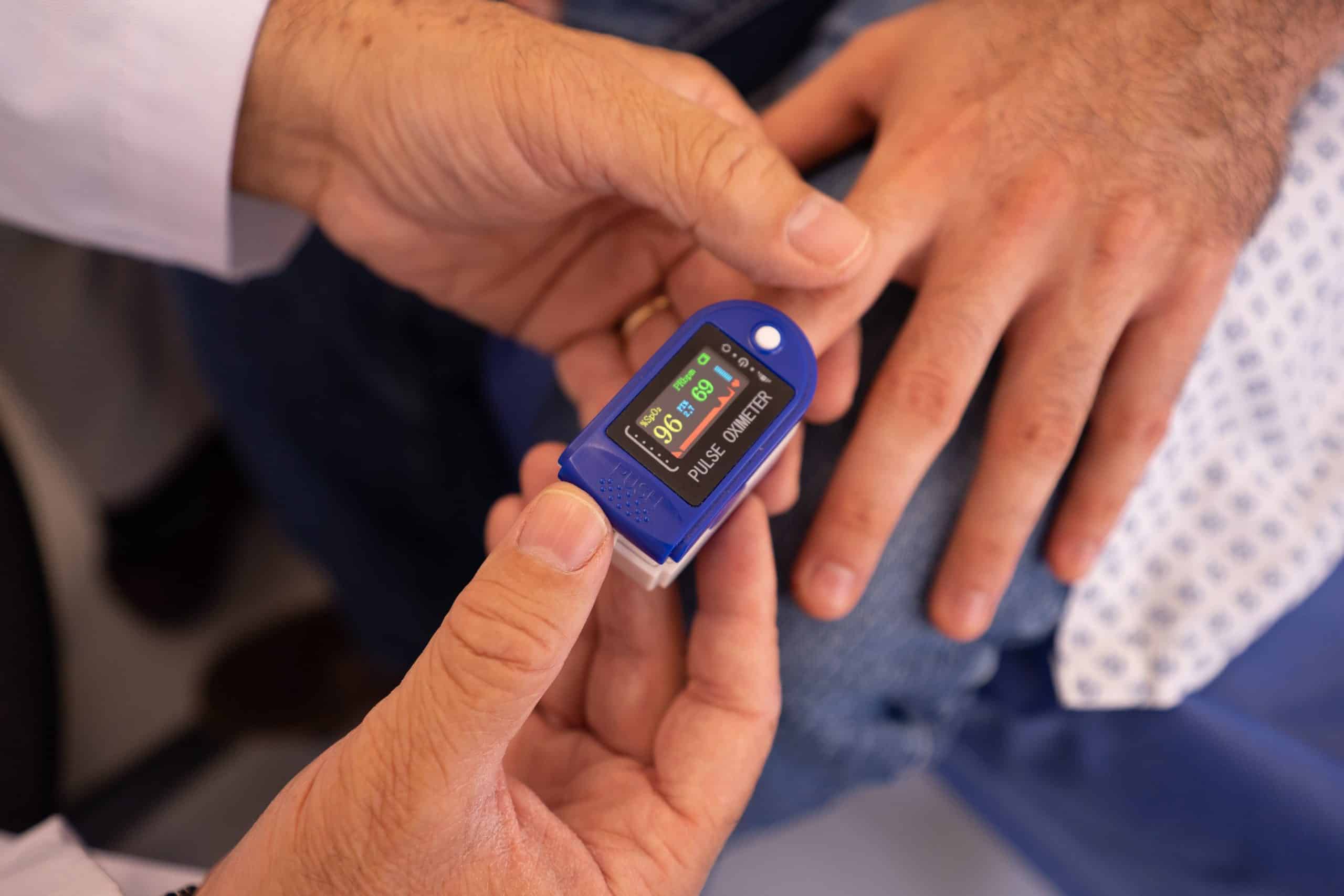How Are Advanced Sensors Revolutionizing Health Monitoring Devices?

Imagine a world where you can monitor your health parameters in real-time, receive alerts when something is off-kilter, and even predict potential health issues before they occur. This is no longer a figment of futuristic fiction; it has become a reality, thanks to the rapid advancements in sensor technologies. Advanced sensors are transforming the landscape of health monitoring devices, making them more accessible, reliable, and accurate.
In this piece, we will delve into how this evolution is taking place, touching on the various types of sensors, their impact, and how they are reshaping the future of healthcare. You will find this article enlightening, whether you are a healthcare professional, a tech enthusiast, or simply a consumer interested in understanding the technology behind your health monitoring device.
A lire également : The best gourmet addresses in Singapore: a roundup of must-try restaurants
A New Era in Health Monitoring
The first-generation health monitoring devices were largely reactive. They provided data on certain parameters when patients felt unwell or during periodic health check-ups. However, the advent of advanced sensors has shifted this paradigm to a more proactive approach.
Advanced sensors offer continuous monitoring, enabling unprecedented access to real-time health data. This not only allows for timely intervention but also makes it possible to predict potential health issues.
Cela peut vous intéresser : What Are the Emerging High-Tech Solutions for Sustainable Agriculture?
In addition, these sensors have made health monitoring much more convenient. Devices are becoming smaller, wearable, and embedded in everyday items like watches, clothing, or even skin patches. This is a major shift from the cumbersome and often intrusive devices of the past.
Types of Advanced Sensors in Health Monitoring Devices
There is a wide range of advanced sensors that are revolutionizing health monitoring devices. Each of these sensors serves a specific function and contributes towards making these devices more effective and user-friendly.
Wearable Biosensors are becoming increasingly common. These devices, including smartwatches or fitness trackers, use sensors to monitor a variety of health parameters such as heart rate, blood pressure, and sleep patterns. They provide a non-invasive way of keeping track of your health and wellness.
Ingestible Sensors, although they might sound like a concept from a sci-fi movie, are very real. These tiny sensors are ingested by the patient and then transmit valuable data about the gastrointestinal tract. They can be used to detect abnormalities, pH levels, temperature, and more.
Implantable Sensors are devices that are surgically implanted into a patient’s body and monitor specific health parameters from within. They can be life-saving in certain cases, such as glucose monitoring in diabetic patients.
Contactless Sensors, as the name suggests, do not require physical contact with the patient. They are typically used in hospital settings to monitor vital signs of patients without disturbing them.
Impact of Advanced Sensors on Health Monitoring
Advanced sensors have brought about profound changes in health monitoring. These changes are seen not only at an individual level but also in healthcare systems and research.
For individuals, these sensors offer a higher degree of control over their health. They can track their health parameters in real-time, receive actionable feedback, and make informed decisions. Moreover, these devices often come with mobile applications that make it easy to understand and interpret the data.
On a broader scale, the widespread use of advanced sensors in health monitoring devices is helping healthcare providers deliver more personalized care. By having continuous access to a patient’s health data, they can adjust treatments and interventions as needed. This also allows for better management of chronic conditions.
Finally, the abundance of health data generated by these devices is a goldmine for researchers. It provides unprecedented insights into human health and disease, paving the way for new discoveries and treatments.
The Future of Health Monitoring with Advanced Sensors
As sensor technology continues to evolve, so too will the capabilities of health monitoring devices. One of the most exciting prospects is the development of predictive health monitoring. With the help of artificial intelligence, these devices could analyze health data and predict potential issues, much like a personal health advisor.
Another area of development is the integration of health monitoring devices into our everyday environment. Imagine a smart home that not only controls your lighting and temperature but also monitors your health.
However, with these advancements come challenges. Data privacy and security are major concerns that need to be addressed. Also, ensuring these devices are accessible and affordable for all will be crucial in realizing their true potential.
How to Make the Most of Your Health Monitoring Device
Owning a health monitoring device is just the first step. To truly benefit from these advanced sensors, you’ll need to know how to use them effectively.
First, choose a device that fits your needs. If you’re an athlete, you might want a device that tracks your heart rate and performance metrics. If you have a chronic condition, opt for a device that monitors that specific parameter.
Next, make it a habit to regularly check and record your health data. Most of these devices come with companion apps that make it easy to track your progress over time.
Finally, remember that these devices are tools to support your health, not to replace professional medical advice. Always consult with a healthcare professional if you have concerns about your health.
Advanced Sensors in Remote Patient Monitoring
Remote patient monitoring (RPM) is an innovative medical solution that leverages advanced sensor technology to keep track of patients’ health conditions from a remote location. By using wearable devices, healthcare providers can continuously monitor vital signs such as heart rate and blood pressure, providing a more comprehensive picture of a patient’s overall health.
These wearable devices use advanced sensors to collect a wide range of health data in real-time. For instance, wearable health monitoring devices can accurately measure a patient’s heart rate, blood oxygen levels, sleep patterns, activity levels, and even stress levels. This enables healthcare providers to respond quickly if any abnormalities are detected, thus enhancing the chances of early detection and intervention.
Moreover, these devices also play a significant role in managing chronic diseases. For instance, wearable devices enabled with glucose sensors allow diabetic patients to monitor their blood sugar levels in real time and adjust their insulin intake accordingly. There’s also a rising trend of wearable technology with built-in blood pressure monitors that can help in managing hypertension.
The use of wearable technology in RPM also extends to elderly care. With fall detection sensors and emergency alert systems, wearable devices provide a safety net for the elderly, allowing them to live independently while ensuring their well-being is monitored.
However, it’s crucial to remember that while these devices offer tremendous benefits, they should not replace regular check-ins with healthcare providers. Wearable technology is a tool meant to enhance healthcare delivery, not replace it.
The Challenges and Opportunities of Advanced Sensors in Health Monitoring
As with any technological advancement, the integration of advanced sensors in health monitoring devices presents both challenges and opportunities. One of the primary concerns surrounding this technology is data privacy and security. With health data being transmitted in real time, it’s essential to have robust security protocols in place to prevent unauthorized access and ensure patient confidentiality.
On the other hand, these advanced sensors bring about transformative opportunities for healthcare. One such opportunity is the potential for predictive health monitoring. By leveraging artificial intelligence and machine learning, future devices could analyze the data collected by sensors to predict potential health issues, even before symptoms arise.
In addition, the integration of health monitoring devices into our everyday environment, such as our homes, is another exciting prospect. This integration could lead to a more proactive and preventive approach to health and wellness.
Moreover, the data collected from these devices could prove invaluable for medical research. By analyzing this wealth of data, researchers could gain fresh insights into various health conditions, leading to new treatment options and therapies.
In conclusion, the use of advanced sensors in health monitoring devices is revolutionizing healthcare delivery. From providing real-time access to health data to enabling remote patient monitoring, these sensors are making healthcare more proactive, personalized, and convenient. But as we continue to embrace this technology, it’s vital to address the challenges it poses and ensure it’s used responsibly and ethically. With proper measures in place, advanced sensors hold the promise of transforming healthcare in ways we can only begin to imagine.
